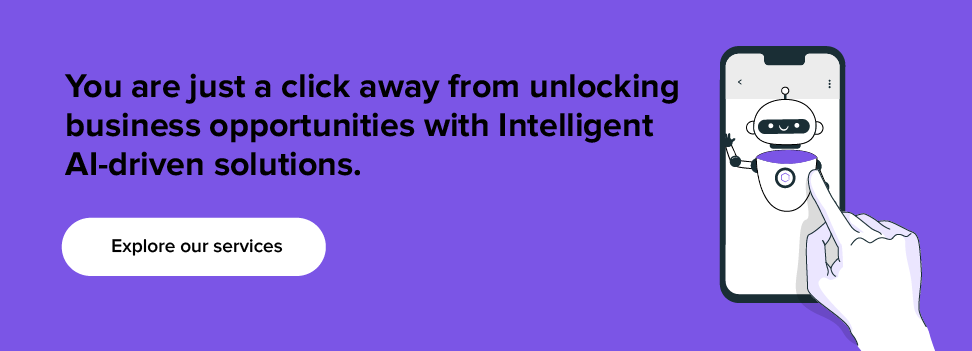- Modern FinTech Technologies and Millenials!
- FinTech and Artificial Intelligence
- Uses of AI and Machine Learning in Fintech for Millennials
- 1. Algorithmic Trading
- 2. Better Targeting
- 3. Better Customer Support
- 4. Help with Underwriting Services
- 5. Stock Market Changes Prediction
- 6. Fraud detection and Churn prediction
- How can Appinventiv help with AI software development?
The bond which is getting seeded between Fintech business and Millennials is poised to be extremely strong. At the back of the digital inclined focus that Fintech startup companies have been operating with, the domain – as a whole – is staring at a time of complete revamp.
While Fintech companies have been quick to adopt this digital transformation and changed demographics, the only answer to how banks could recreate themselves in the age of millennials lies in intelligence. They will have to learn the tricks of trades via introducing AI in Fintech.
Let us walk you through the whereabouts of modern technologies and the uses of AI and ML in fintech for Millennials, highlighting what both Fintech companies and banks can work around.
Modern FinTech Technologies and Millenials!
Since the past many years, the millennial user group has been upending the markets, making companies scramble to find the right approach to attract the industry’s first digital natives.
With more of these young adults entering the workforce and investing in their futures, monetarily, the Fintech industry too is soon realizing that they cannot move with the business as usual mindset with this smartphone generation.
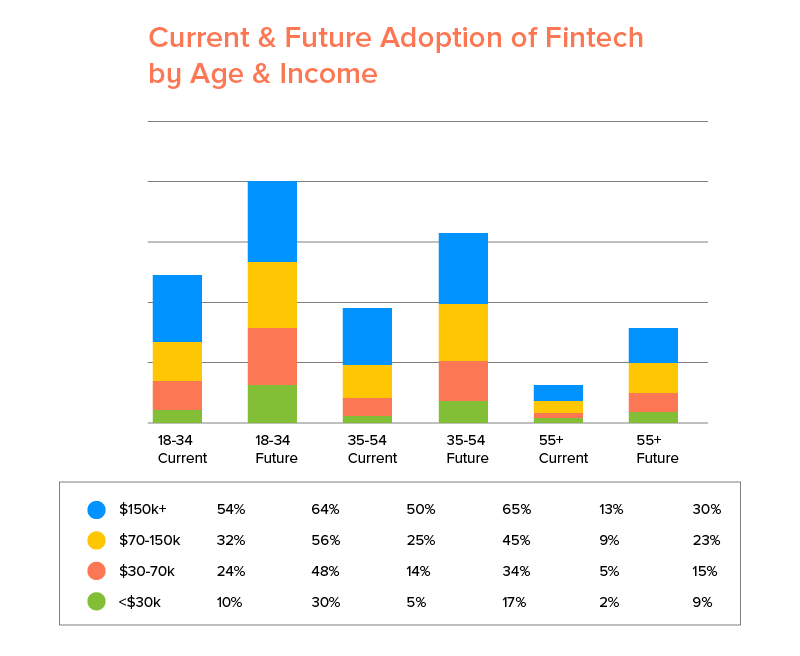
Modern technologies such as AI/ML (Artificial Intelligence/ Machine Learning), IoT (Internet of Things) have been hailed for being progressive and more acceptable for new finance app ideas compared to the last generations. This is probably why the Artificial Intelligence in FinTech market size is projected to reach 7,305.6 million USD by the end of the year 2022. This exhibits how modern FinTech business institutions take the values and needs of millennials into account.
Millennial users also value convenience and transparency. They demand personalized finance service and product on their fingertips, which is not restricted to time and geography. These primal sets of characteristics are what Fintech companies need to maintain when aiming to maintain a competitive advantage in the climate of fast-evolving technological and demand change.
Many Fintech companies have already seized upon this niche opportunity, phasing out traditional banking and bringing business mobile apps into the frame to match the shifting consumer needs.
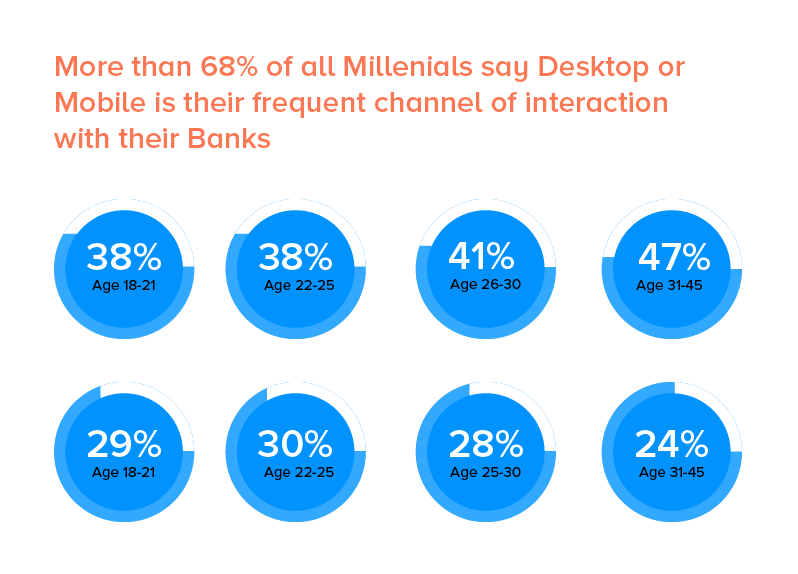
FinTech and Artificial Intelligence
One centered avenue that Fintech companies have focused upon is Artificial Intelligence.
Artificial Intelligence in the FinTech industry is one of the biggest disruptions of the business economy with almost every vertical either embracing the technology or planning to add it into their process by the next 5 years. In fact, AI is found to be one of the prime fintech trends in the future, and fintech centric AI and Machine learning app developers are also putting efforts to excel in this field.
The industry is finding use cases specific to Artificial Intelligence in banking which answers why Fintech is targeting millennials using AI to not just improve the millennial customers’ experience but also revamp their business model to its entirety.
[Also Read: How Much Does Cleo Like AI App Development Cost]
Let us look at some of the use cases that the Fintech industry has found in terms of using Artificial Intelligence to change their mobile offering. These cases should be read as a series of new opportunities for a Fintech startup.
Uses of AI and Machine Learning in Fintech for Millennials
Industry experts believe that AI is the future of financial services. Artificial Intelligence has marked the Fintech industry growth through its excessive applications and use cases that have wooed millennials into the modern FinTech landscape. Below are some of the AI applications in banking and financial enterprises for millennial users to leverage.
1. Algorithmic Trading
While Algorithmic trading is not a new concept in the finance domain, using AI to effectively perform the task on millions of devices is.
[Algorithmic trading uses complex formulas, combined with mathematical models and human oversight, for making decisions related to buying and selling of financial securities on the exchange.]
A great number of financial companies invest in the algorithmic trading practice as the frequency of trade that is executed through machine learning is next to impossible to replicate manually.
2. Better Targeting
A better chance at targeting is what the core ML and AI benefits in banks are.
Millennials demand personalized service on their fingertips independent of the time and place. For this purpose, fintech companies are making use of machine learning-driven robotic advisors to replace the need of human advisors at all waking hours.
This robo-advisors target towards millennials is driven with the aim to not just attract them but also remove massive processing costs for the financial institutions. The extent of personalization and promptness that the robo-advisors offer is the answer to what is the impact of AI in fintech.
3. Better Customer Support
One of the primary uses of advanced automation and AI in the banking and finance industry can be seen in how the Fintech companies and banks are making their customer service digital and real-time. Let’s give a much closer look at examples of how integration of AI in customer support services can be made possible and how it becomes one of the top benefits of artificial intelligence based apps, especially those which are centered around banking and other financial services:
Chatbots
Chatbots are the basic answer to how Fintech is targeting millennials.
By the end of 2022, banks might automate over 90% of their interactions through chatbots (Foye, 2017).
By making use of technologies like chatbots, AI helps financial institutions solve users’ issues instantly. A reason why businesses look for the cost of a Cleo-like chatbot app.
Personalized experience
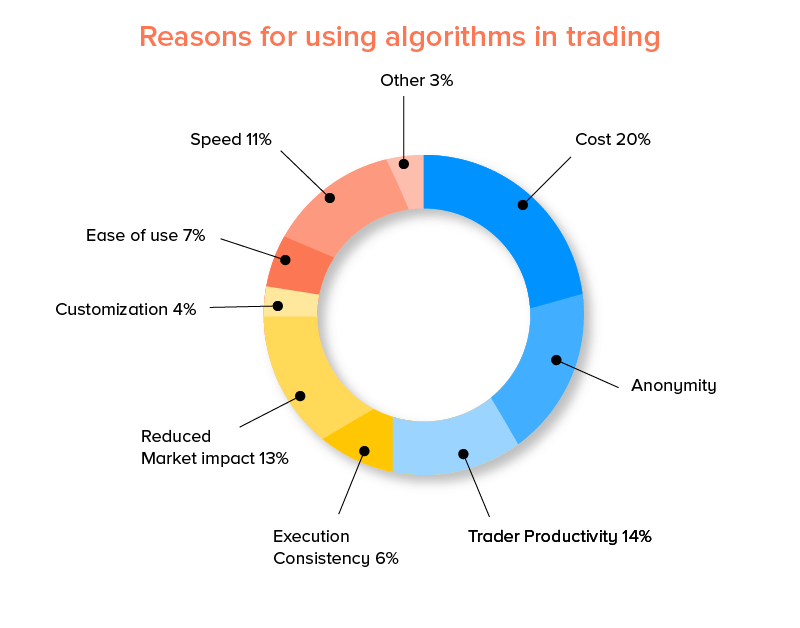
Personalization is an answer to building long-lasting customer trust and loyalty for any organization and business. People, especially when interacting with finance-related matters, value deep relationships and transparency with the institution and mobile app. This is one of the main reasons why people appreciate the introduction of AI in banking and other fintech solutions.
Personalization is the number one thing that businesses ask for when asking how to use AI to develop next-gen apps. ML algorithms can help in analyzing customers’ information and predict the services that would most or least impress the Fintech users.
One example of personalization in AI-backed Fintech applications can be seen below:
Appinventiv helped Bajaj Finserv, one of the leading Fintech enterprises, create the next generation digital platform that offers easy and affordable finance options. The platform is personalized for both customers and merchants with low interest rates and flexible repayment options. This scaled their merchant onboarding and helped with scaling everyday transactions.
Applications like these clearly show the importance of AI and machine learning in banking and financial sectors to make millennials feel important and motivated to remain hooked with the application.
(Also read: 10 Use Cases and Real Examples of Generative AI in Financial Services)
4. Help with Underwriting Services
The underwriting process is related to assessing risks which every financial service user comes with. The role of AI in this fintech process comes in the face of analyzing the true worth of the applicants by looking into their stringed data, especially ones related to their personal spending abilities on social media and other places.
The AI algorithms also help in assessing and predicting the underlying loan trends which can influence the financial sector in the coming time.
5. Stock Market Changes Prediction
With the stock market becoming one of the best investment choices for millennials, the demand for apps that would help make the navigation easier has grown. Something that has helped define newer applications of ML and AI in the fintech industry.
Several AI-backed mobile apps have been introduced which analyze the past and real-time information related to companies and their stocks. And on the basis of this information, they help investors identify which stocks should be invested in and which would prove to be a bad investment choice.
6. Fraud detection and Churn prediction
Financial frauds are one of the significant concerns for millennial users. However, AI and machine learning can help with fraud detection by interpreting large chunks of data and analyzing fraudulent patterns in it. The AI/ML technique involves both data mining and anomaly detection where FinTech enterprises can save their customer data from identity theft, cyber attacks and phishing.
Churn prediction has also proved to be a game changer for financial institutions. Major banking enterprises focus on keeping loyal customers rather than making a new one. AI powered churn predictions can help financial firms in finding why their customer left and which customer is more likely to drop their services.
So here were the six uses of Machine Learning and AI in Fintech for millennials’ user base to get their attention and make them remain invested in the mobile-based financial offering. The above pointers also exhibit the benefits of AI in banking and other financial enterprises.
Now that you know how AI is used in FinTech, it’s time to grab this great opportunity to invest in AI software development services.
How can Appinventiv help with AI software development?
Having developed multiple AI software and apps for fintech startups and establishments, we have mastered the art of integrating artificial intelligence and ML in financial processes. We specialize in designing intelligent solutions to help your business automate tasks, solve problems and serve customers better.
Our suite of AI/ML solutions range from data capture and analysis to multi-platform integration. You can also connect with our experts for customized AI/ML based solutions for your business.
Let us help you.


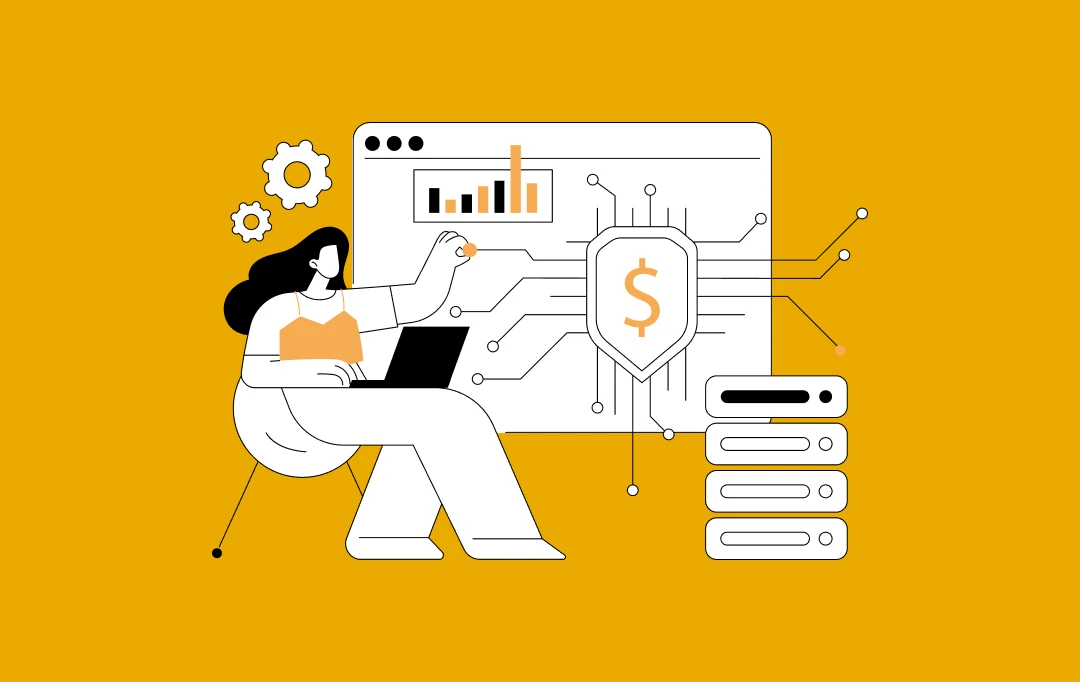
How Much Does it Cost to Build a Custom AI-based Accounting Software?
The accounting industry has been evolving very fast, and the expanding use of AI in accounting is becoming evident. According to The State of AI in Accounting Report 2024, 71% of accounting professionals believe that artificial intelligence in accounting is substantial. Considering the given number, it is easy to grasp why companies are keen on…

Generative AI in Manufacturing: 10 Popular Use-Cases
Introduction Manufacturing is truly getting a serious makeover for the future, and it's not full of buzzwords and techno-speak; with the dawning of AI technologies, manufacturing is no longer about nuts and bolts and conveyor belts. Yes! We are talking about how Generative AI in manufacturing is transforming the entire industry. It was the next…









